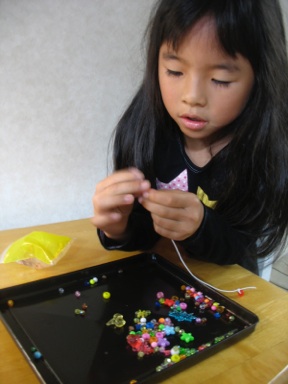Rules that are Unhelpful
-
1.behave
-
2.help your mother
-
3.be good
These are all too vague for the child to know what is expected
Rules that are Too Hard
-
1.clean your room
-
2.clean up after supper
-
3.clean the bathroom
These are too big of a job for a kindergartener, but if broken down into smaller tasks, could be done. For example, number one above could be broken down into 1) make your bed, 2) put dirty clothes in the hamper, 3) put toys on the shelf. Then it becomes understandable and doable. But if it’s a big mess, they still need help!
Rules that are just about right
-
1.Obey your parents and teachers
-
2.Do not hurt other people (kick, hit, bite, etc)
-
3.Do not hurt people with words
-
4.Do not break things
-
5.Do your chores (make bed, get dressed, brush teeth, put away toys, set the table, etc)
-
6.Do not watch more than 30 min. of T.V. each day
Now that your child is in Kindergarten, he understands so much more than he could as a toddler! It is still best to keep rules short and sweet so they can be understood and remembered. If she can read, having a list on the wall can be helpful.
This is the perfect age to begin chores. Some parents decide to postpone making their children help around the house until they are older because it takes way less time to do it yourself than to spend the time it takes to teach your children and to monitor the quality of their work. This is a big mistake. First, they begin to think that all these things are Mom’s jobs, and they don’t have to do anything. Second, it is way harder to make them start working if they have gotten used to having everything done for them. Third, you are missing out on valuable teaching time, since there are so many things to teach them before they leave home. And the best part is, by the time they are 4th or 5th grade, they can be a huge help (but not if you are just beginning to teach them!) They need to understand that everyone needs to help out around the house--no one is exempt. It is also a great way to teach them responsibility.
Fighting
“Don’t fight.” doesn’t make a good rule because if two people want the same thing, they are going to both try to get it, and a fight ensues. As long as 2 people live in the same space, whether kids or adults, fighting happens. Our selfishness kicks in, and we demand our own way. When our kids do it, we hear screaming or crying from the next room, and when we go to find out what happened, the fight just escalates,”He said...” “She said...” How can you figure out how to dole out consequences if you don’t even know what happened? I decided not to even try to find out. As long as no one hurt the other one physically or with words, I skipped any consequences. After all, the point is to help them learn to compromise without fighting. So I would ask each of them what they wanted, and give them some compromise options, then stepped back to let them work it out peacefully. This strategy worked really well.
Sometimes the bickering in the house would rise to an almost constant level. When that happened, I would try to sit back and figure out why. Sometimes I realized that I had been really busy. Then I would stop and play with them and give each one some individual attention, and our home would return to peace and tranquility. Other times I would realize that they had gotten bored--it might have been raining for days, and we had not been out of the house. We would go do something interesting, and there would be no more bickering when we returned. It doesn’t have to be something as exciting as a children’s museum--it can be as mundane as going to the library to borrow a pile of books, or take a rain walk, play in the puddles and come home and take a hot bath--something a little out of the ordinary to add spice back into life.
Parenting > Discipline > Sample Rules for Kindergarteners
Parenting > Discipline > Sample Rules for Kindergarteners








